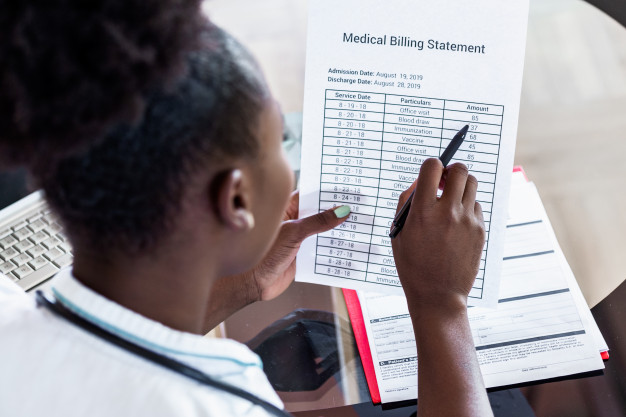Healthcare became the topic of almost every conversation overnight thanks to the current pandemic. In the US, it brought up painful reminders about the health and safety of the international community and the healthcare system as a whole.

As someone living in the US, medical debt is not uncommon. In fact, according to a study done by Health Affairs in 2018, one in six people in the US have past-due medical bills. Imagine now if one of your international students, that may not speak English fluently, came to you with astronomical medical bills. Unpaid medical bills create a great deal of anxiety for anyone, especially when you’re not familiar with the medical system in a foreign country. The US healthcare system is very complex and very expensive.
If your students are being contacted by hospitals or collections agencies, there are ways to help them and guide them. Here are some ways to deal with medical debt:
Gather the information
It might seem like detective work, but it’s important to cross all t’s and dot all i’s so you are able to advise your students correctly. Is your student insured? If so, did they file a claim with their insurance company? Are the bills they are receiving their out-of-pocket expenses or have the claims not been processed yet? Were claims denied?
If an international student is uninsured, you’ll want to gather all of the bills that they’ve incurred and the contact information for all providers. Gathering all of the information will help your student with the next step.
 HIPAA Authorization: In the United States, private information, including medical, is protected under HIPAA. If you want to contact an insurance company or a provider on behalf of your student, they must have a written authorization from the student so they can disclose the information to you.
HIPAA Authorization: In the United States, private information, including medical, is protected under HIPAA. If you want to contact an insurance company or a provider on behalf of your student, they must have a written authorization from the student so they can disclose the information to you.
Options Available
Many hospitals and providers in the United States have a financial assistance policy or charity care policy in place. In fact, by law, nonprofit hospitals are required to have these assistance policies. Contact the billing office at these places and inquire about possible options:
- The provider might agree to reduce the bill
- The provider might offer a payment plan
- The provider could forgive the entirety of the debt if the student is able to provide proof that they are not able to pay for their medical expenses
Persistence is the name of the game. You or your student should open a channel of communication between you and the provider. Explain the situation, use words like “financial hardship”, “no sources of income”, and listen to the options they give you.
The Negotiation Phase

Much like a realtor does when helping you purchase a house, you can also negotiate medical bills. To our surprise, not many people know this. If your student is uninsured, a hospital will charge him or her based on their chargemaster rate, or the full sticker price if you will. It’s important to do some research and find out how much the hospital would bill an insurance company, Medicaid or Medicare. Insurance companies remind their clients often to use their contracted providers and there is a reason for it. They have already negotiated how much a hospital can charge their members.
Useful Resources
Like the insurance company, when you or your student are trying to negotiate medical debt, ask for the lower price. You might find the Healthcare Bluebook helpful as it provides fair pricing for medical procedures. This will give you an idea on what pricing you can ask for.
Another useful resource once you or your student have exhausted all negotiations with the hospital is to bring in an expert. The National Foundation for Credit Counseling can pair you with a credit counselor and help you navigate medical debt with a medical provider or a collections agency. They offer assistance in English and Spanish which might be useful for many international students.
When it comes to tackling medical debt, your international student is not alone. You can refer them to our student blog on How to Deal with Medical Debt in the US for more information. We also offer many free resources for you and your international community like our educational videos about the intricacies of the US healthcare system available in eight different languages.
Category: Health & Safety Abroad, Insurance Explained, International Student Health Insurance, International Students in the USA, School Resources, Student Insurance, Study Abroad
Tags: financial assistance, health insurance, international education, international student with medical bills, medical bills, Medical Debt in the US, US healthcare system


I am an international student doing a PhD at NDSU. Approximately 40 days ago, I started with double vision, they made me do an MRI and study more, and I am already accumulating medical expenses that I cannot afford with my $1600 assistantship. I have medical insurance from United Health care but am already accumulating debts I cannot pay. I need to contact you to let you know more about my situation. I appreciate that we can talk.
My phone number is 701-929-0056
Mi email: dante.marino@ndsu.edu
Dante Marino